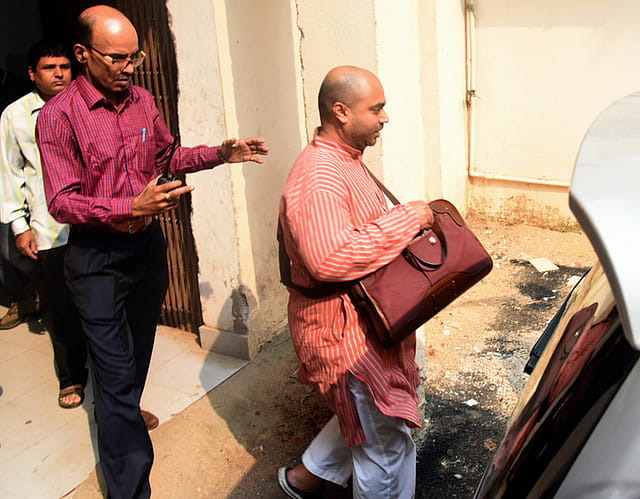The Real Joke

IT IS TRUE that there are limits to freedom of expression, but, in a liberal democracy, those boundaries are usually self-evident. Advocating the legalisation of paedophilia, for example, would be intolerable anywhere in the world. Criticism of political leaders, on the other hand, is not just fine but a sign of how mature a democracy is. In India, however, despite its hosannas to free expression post-Independence, it is dangerous to offer a contrarian opinion on any touchy issue that has the ability to provoke a wide emotional response. Silence is enforced, both by the state and society, through intimidation. In Maharashtra, anything mildly derogatory said about Shivaji by a public person would surely mark him out for imminent violence. There are similar 'that which cannot be spoken about' subjects in other states too. Still, even by that measure, what has happened in Odisha, where a man was imprisoned for 40 days for making a joke about a temple, is a travesty.
Abhijit Iyer-Mitra's crime had been facetious remarks on the sexual images of Konark Temple. The Odisha Assembly passed a privilege motion and, along with another case relating to a year-old tweet, this was enough to see him in jail. The Supreme Court brushed off intervening by saying that if he feared for his life, then there could be no safer place than jail. Bail was refused by lower courts. The charges were dropped this week with the Odisha government releasing a statement that said, 'He has appealed "to accept his apology and contrition" in having wounded the sentiments of people of Odisha without intention… Taking into account his representation, the Government have decided not to accord sanction of prosecution in cases…' It also withdrew other cases, but by then the point had been made.
AIming High
20 Feb 2026 - Vol 04 | Issue 59
India joins the Artificial Intelligence revolution with gusto
If the state government accepts that Mitra had 'no intention' in hurting sentiments, then why was he in jail at all? Section 295a of the IPC is India's version of the blasphemy law, and it is what makes governments feel empowered to act against anyone who mocks religion. It is a medieval law protecting medieval values that can send a man to jail for three years if he insults religious beliefs. What is so sacrosanct about religious beliefs that they should not be open to ridicule?
If the case had gone to court, eventually it would have been thrown out. That is also why the Odisha government withdrew. But using the process to inflict punishment sends out a message, one that is being heard by a lot of politicians in power. Mitra is a rightist, and so found scant support from liberals who he had antagonised. Liberal voices usually resonate louder on such issues, but their tempered response, even if they have sound reasons for detesting his politics, is self-defeating. Every political satrap in India now has a readymade precedent to harass anyone who has ever made a comment that can be construed as derisive to religion. For example, if you retweet a joke on cow protection, you are now fodder for a privilege motion by the UP Assembly—and 40 days in jail.
